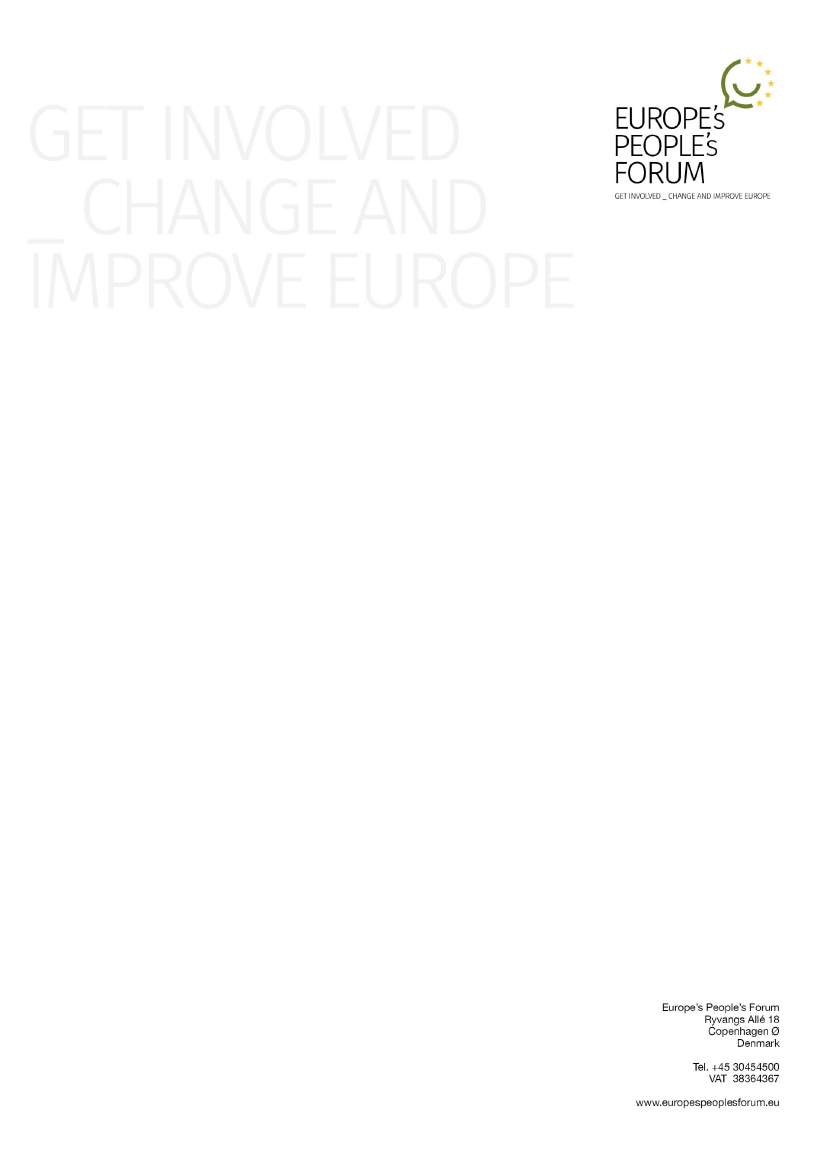
Summary of minutes from EPF General Assembly 13.6.2022
The annual General Assembly was this time with EC Vice President for Democracy and
Demography Dubravka Suica, President for European Economic and Social Committee
Christa Schweng and former Chair of the Danish Parliament and UN General Assembly,
Mogens Lykketoft. as keynote speakers ahead of the formal General Assembly.
Unfortunately, Covid 19 and other obligations kept our MEPs Alin Mituta and Helmut
Scholz away.
The General Assembly agreed to launch the Center for European Citizens’ Democracy
(CECD) to strengthen democracy and renew trust and the sense of ownership in the
European Union by engaging citizens in European policy-making and imp0rove the EU’s
ability to reflect the needs and visions of European citizens. You will soon hear much more
about this initiative but attached is our draft description. As you will see below, the initiative
was well received by our keynote speaksers:
Center for European Citizens Democracy
1. “I want to thank Europe’s People’s Forum for your very valuable contribution
throughout the Conference on the Future of Europe. Our focus must be on
developing an ecosystem of democratic innovation and of citizens engagement and
participation in democracy. . Today you are launching the permanent
Center for
European Citizens Democracy.
This initiative goes in the direction set by the
citizens and will contribute to the democratic ecosystem.””
As part of the follow-up the
three institutions will hold their feedback events in the Autumn. This will put a seal of
legitimacy on the entire process. As we enter this phase I continue counting on the
constructive support of the organised civil society.”
(Ms. Dubravka Suica)
2. “During the Conference on the Future of Europe I continued to appreciate Europe’s
People’s Support for your constant and proactive support in the process. The
launch of your Center for European Citizens Democracy is a concrete step in your
commitment to strengthen democracy and trust and extending ownership to the
European Union by engaging citizens. Be sure we will be happy to explore ways to
cooperate.” (Ms. Christa Schweng)
3. “I am convinced that the Centre for European Citizens’ Democracy is a superb
initiative to strengthen democracy in the European Union and in the candidate
countries as well. And I try to convince former colleagues and other decision
makers in Denmark that CECD should be supported to get a good and effective
start in this very important project” (Mr. Mogens Lykketoft)
1